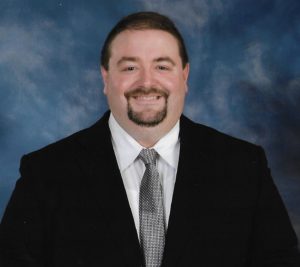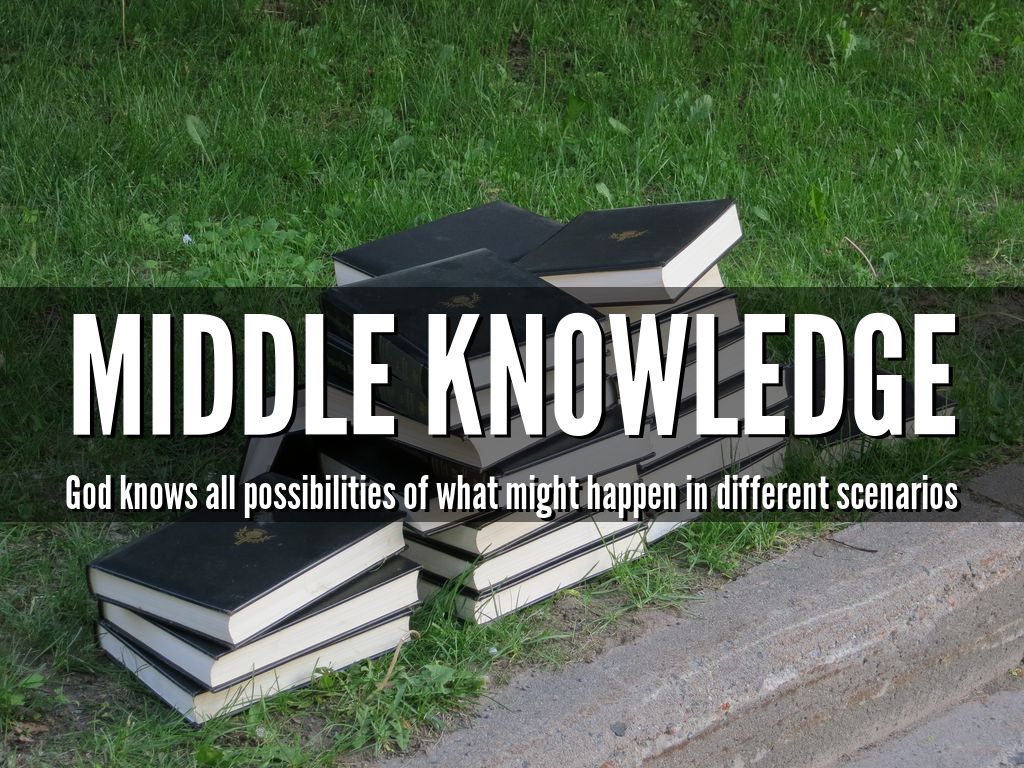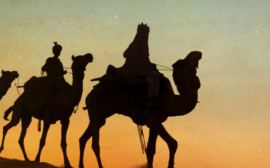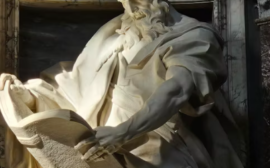By: Brian Chilton | October 30, 2017
Middle knowledge is a concept that describes how God sovereignly operates in time with free agents. These days, many individuals attempt to claim what innovative theologians say about the theological concepts they espouse with little interaction with the actual theologian. I think it is imperative that individuals engage with primary sources as much as it is possible. As a Ph.D. student, I am finding the importance of this practice as essential. So, what does Luis de Molina, the first proponent of middle knowledge, say about middle knowledge and the reasons why one should accept the doctrine? This article will look at four proofs that Molina provides for middle knowledge. But before doing so, let’s look at how Molina defines middle knowledge—be warned, it’s deep!!! Molina refers to middle knowledge as follows”
“It is not simply because things exist outside their causes in eternity that God knows future contingents with certainty; rather, before (in our way of conceiving it, but with a basis of reality) He creates anything at all, He comprehends in Himself—because of the depth of His knowledge—all the things which, as a result of all the secondary causes possible by virtue of His omnipotence, would contingently or simply freely come to be on the hypothesis that He should will to establish these or those orders of things with these or those circumstances; and by the very fact that through His free will He established in being that order of things and causes which He in fact established, He comprehended in His very self and in that decree of His all the things that were in fact freely or contingently going to be or not going to be as a result of secondary causes—and He comprehended this not only prior to anything’s existence in time, but even prior (in or way of conceiving it, with the basis of reality) to any created thing’s existence in the duration of eternity.”[1]
Simply put: God knows in himself the free actions of secondary agents, that is, free creatures. God knows this information in himself and not as a result of an outside influence. With Molina’s definition of middle knowledge in place, how does he defend the concept? Molina provides four proofs in Part IV of his Concordia.
First Proof: God Knows Factual Choices and Counter-factuals of Free Agents.
Molina notes that God has “certain cognition of some future contingents that depend on human free choice, but that neither have existed nor ever will exist in reality and that hence do not exist in eternity either; therefore, it is not simply because future contingents exist outside their causes in eternity that God knows them with certainty.”[2] Molina provides two Scriptural references to God’s middle knowledge in history, and one from the Apocrypha. Molina refers to Jesus’ middle knowledge of Tyre and Sidon’s response in Matthew 11:21 had the miracles which were performed in Chorazin and Bethsaida had been performed there.[3] He also gives the example of 1 Samuel 23:10-12 where David asks God about the decision that Saul would make concerning a town named Keilah.[4] God uses a form of middle knowledge in both cases.
Second Proof: God Comprehends Thoroughly All Things that Exist in Himself.
Molina uses the term “natural knowledge” in disputation 49 to refer to middle knowledge. Molina notes that God “comprehends Himself, and in Himself He comprehends all the things that exist eminently in Him and thus the free choice of any creature whom He is able to make through His omnipotence.”[5] That is to say, God eternally knows everything about everything he creates, including the free decisions a free agent would make, the circumstances leading to that decision, and whether or not a free agent would make a certain decision as opposed to the decisions not made.
Third Proof: Nothing Contributes to God’s Knowledge.
Individuals claim that Molinism leads to open theism or that God’s knowledge is contingent upon human beings. Molina does not make such a claim in his proofs. Molina notes that God “does not get His knowledge from things, but knows all things in Himself and from Himself; therefore, the existence of things, whether in time or eternity, contributes nothing to God’s knowledge with certainty what is going to be or not going to be.”[6] God’s knowledge is thorough and complete. Therefore, God’s middle knowledge is part of God’s overall knowledge of all things which comes from within himself and not from outside influences.
Fourth Proof: God Predestines According to His Middle Knowledge.
In understanding predestination and election, God has “providence and predestination with regard to future contingents.”[7] God makes his decree to provide the means and arrange the things necessary to arrange certain ends. God “foreknows future contingents with certainty . . . He knows them through a sort of [middle knowledge] and on the hypothesis that He should will to create and arrange things in this or that way, whereas in that free decree, which as a cause precedes the existence of future contingents both in eternity and in time, He knows them absolutely and without any hypothesis or condition.”[8] God knows what it would take to reach those whom he knows will respond to his free offer of grace.
Conclusion
Molinism is a solid solution to the biblical revelation given to us. No system is without its weaknesses. However, I do not see how Molinism could lead to open theism, as falsely ascribed by its opponents, and neither does Molinism lead to finite godism. Molina’s description of middle knowledge is a theologically robust view based upon the aseity and sovereignty (and I feel even the simplicity) of God. Middle knowledge also fits well with the notion that God desires that all would be saved, but decrees that only those who respond to his grace would be saved. Personally, I think middle knowledge is a solid solution to the divine sovereignty and human freedom mystery.
William Lane Craig Explains Middle Knowledge
Notes
[1] Luis de Molina, “On Divine Foreknowledge,” Concordia IV.49.8, in On Divine Foreknowledge: Part IV of the Concordia, Alfred J. Freddoso, trans. (Ithaca, NY; London, UK: Cornell University, 1988), 115-116.
[2] Molina, Concordia IV.49.9, 116.
[3] Molina, Concordia IV.49.9, 117.
[4] Molina uses the Vulgate, thus he calls the text 1 Kings 23:10-12. In English Bibles, the text is found in 1 Samuel 23:10-12. Molina, Concordia IV 49.9, 117.
[5] Molina, Concordia IV.49.11, 119.
[6] Molina, Concordia IV.49.12, 120.
[7] Molina, Concordia IV.49.13, 121.
[8] Molina, Concordia IV.49.13, 122.
About the Author
 Brian Chilton is the founder of BellatorChristi.com and is the host of The Bellator Christi Podcast. He received his Master of Divinity in Theology from Liberty University (with high distinction); his Bachelor of Science in Religious Studies and Philosophy from Gardner-Webb University (with honors); and received certification in Christian Apologetics from Biola University. Brian is currently a student of the Ph.D. program in Theology and Apologetics at Liberty University. Brian is full member of the International Society of Christian Apologetics and the Christian Apologetics Alliance. Brian has been in the ministry for over 14 years and serves as the pastor of Huntsville Baptist Church in Yadkinville, North Carolina.
Brian Chilton is the founder of BellatorChristi.com and is the host of The Bellator Christi Podcast. He received his Master of Divinity in Theology from Liberty University (with high distinction); his Bachelor of Science in Religious Studies and Philosophy from Gardner-Webb University (with honors); and received certification in Christian Apologetics from Biola University. Brian is currently a student of the Ph.D. program in Theology and Apologetics at Liberty University. Brian is full member of the International Society of Christian Apologetics and the Christian Apologetics Alliance. Brian has been in the ministry for over 14 years and serves as the pastor of Huntsville Baptist Church in Yadkinville, North Carolina.
© 2017. BellatorChristi.com.





